My name is Will. I am an Alcoholic.
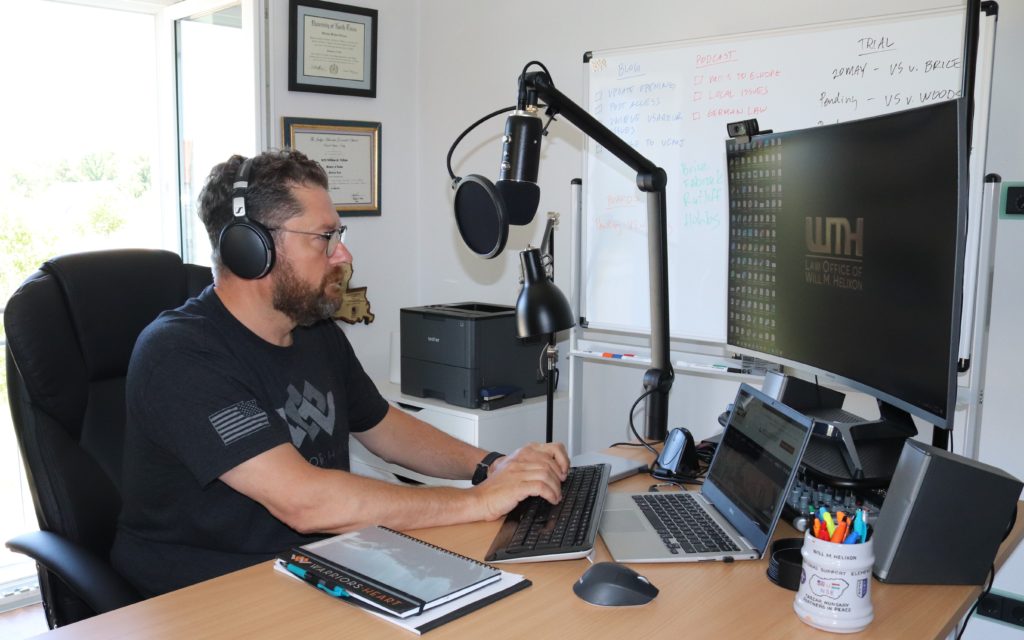
I uttered these words for the first time on May 14th, 2019. I am writing this very personal blog entry because I want others out there to know they are not alone in their struggle with alcohol. I also want to dispel any rumors or gossip about my second medical leave of absence from the Law Office of Will M. Helixon since June 2018.
Knowing I Had A Problem
While I knew I was a heavy drinker, it was not until I simply gave up on my half-measures to quit drinking that I agreed to enter a 42-day program at a rehabilitation treatment facility. I took several self-assessment tests and questionnaires: the A.A. 20-Questions Text, the Alcohol Use Disorder test, and the Johns Hopkins University Test for Alcoholism. Not surprisingly, all instruments had me pegged as much more than a “heavy drinker.”

Frustrated, I continued to drink, because when I was drunk, I could escape all my problems, including ironically, my excessive drinking I now call alcoholism. I was late in returning emails, and I missed meetings with clients – resulting in the loss of business and reputation – I was hanging on by a thread.
Out of Time – Work Slipping
I “snapped” on May 2, 2019.
On that day, I was fired by a battalion commander client with whom I served previously. He hired me because of my reputation and my work of which he previously knew. When he terminated my services, I was embarrassed, and this was the first time I was fired for what I had no doubt was my “alcoholism.” Naturally, my solution to this situation was to get further “shitfaced.” By the time I received his email at 1145, I had already consumed a half-liter (17-ounces or about 13 shots) of vodka. After receiving the news, I drank .2 liters (6.5 ounces or about 5.5 shots) more of vodka. I then drove to the grocery store and purchased .4 liters (13 ounces or about 11 shots) of vodka in individual .1 liter “fist-sized” bottles.
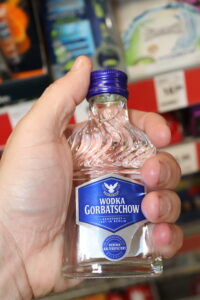
Thoughts of Suicide
Clearly intoxicated, armed with my 4 fist-sized bottles of vodka and a tow strap I picked up from my house, I drove my A-series Mercedes out of town and looked for a place to park. I decided to take a backroad and drove my car into the forest, where I parked my car under a tree that was obscured from the road. I got out of my car and climbed on the roof – I was able to reach the lowest limb of the evergreen spruce tree – I was going to do it. I did not want to die, but I was exhausted by the way I was living. To my intoxicated mind, there was no alternative. I intentionally left my cell phone at home to avoid any interruption.
I climbed down from the roof, entered the car, and just sat there – running through all the options – only one seemed to make sense. I guzzled .2 liters of vodka straight and killed the final .2 liters moments later. By this time, I had downed over a liter (36.5 ounces, almost 30 shots) of vodka straight throughout the day. In tears, I scribbled two notes. In one I implored for forgiveness for my weakness, and the other apologized for my way out.
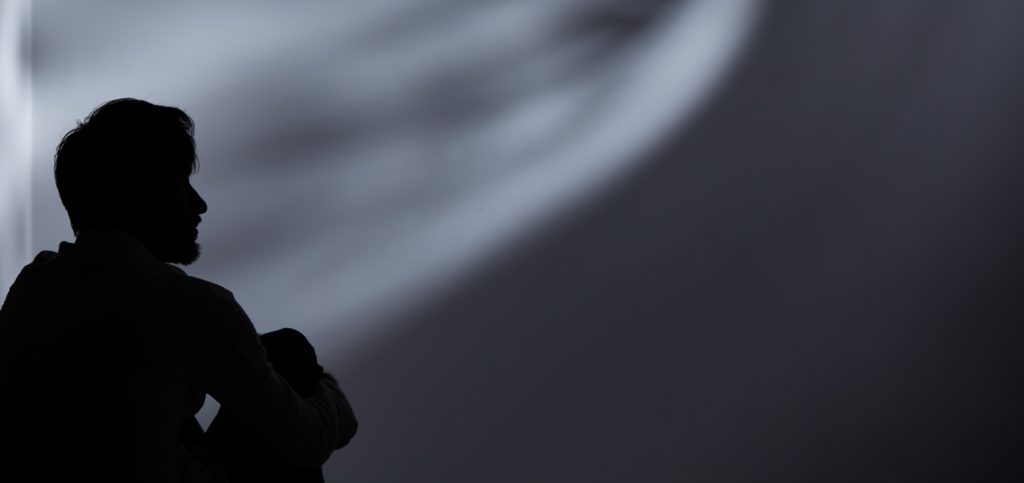
Too Drunk Too Act
Then it happened – in my alcohol-fueled stupor, I could not find the towing strap – I looked everywhere and was screaming “what the F%#!, where’s the G*#damn strap!” In addition to losing the strap, the key to the car was gone too. Too F%#!ing drunk to hang myself (the first of many miracles)! At this point, I started experiencing fragmentary blackouts. The rest my memory of the afternoon/evening is a series of pictures and video snippets – laying on a bed of moss, stumbling in the forest, leaning on a signpost on German Highway St 2123 – I found myself in a late model car telling the driver I lived in Sorghof. He managed to get enough information from me to drop me off at my house with my only recollection laying in the backyard and being discovered by my girlfriend, Ebru, and her 20-year-old son, Devante. I had difficulty standing or stringing together a coherent thought, and it was impossible to speak with any sense.
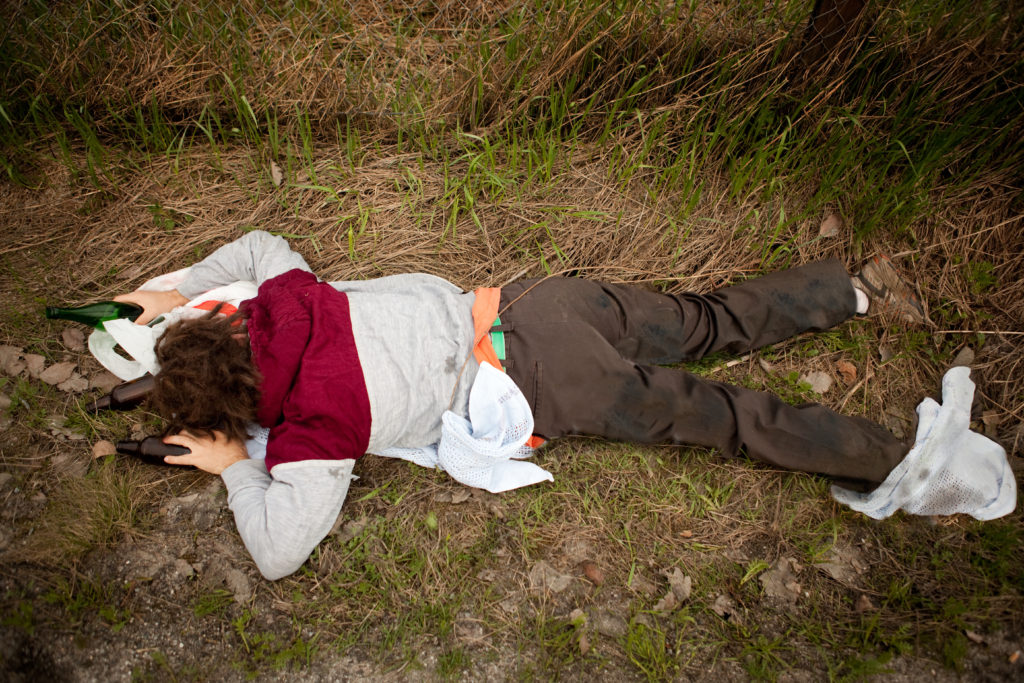
I was sick — and I desperately needed help — but I seemed incapable of doing it alone. This heavy burden fell upon my girlfriend, Ebru — who had put up with my drunkenness for several months. I am sick about the burden my sickness created for those around me.
Time For Alcohol Rehab Arrives
After being helped into the house, Ebru (my girlfriend) TOLD me it was time for a rehabilitation program. Unbeknownst to me, my stepsister (TK) and she had found a treatment program in Texas for military veterans and first responders – Warriors Heart in Bandera, Texas, about 45-minutes outside of San Antonio. I was defeated and at rock bottom. I was even too drunk to end my own life, despite the half-hearted intention to do so. I agreed to the residential substance abuse and PTSD treatment program found by TK and Ebru. The days between rock bottom and admittance to Warriors Heart are a blur – Ebru and I were supposed to attend a wedding in Savannah of one of Ebru’s good friends. It had been planned for the better part of a year, and our tickets were purchased in January for this wedding. Although I recall some of the trip, most of it was a fog – Ebru called and begged Warriors Heart for an earlier admittance date because I was spiraling out of control. The admission team moved up my admittance date four days, and on the Saturday of the wedding – Ebru flew with me to San Antonio to enroll me in the program, missing the wedding of her good friend.

Shortly after leaving for the States, another long-term client, for whom I was to write a book and create a website, fired me. My guilt over this failure haunts me to this day. These are just two of the individual let down by my alcoholism — I owed it to myself, Ebru, my son and daughter, and my clients to get help.
Fear Of The Unknown
May 11, 2019, started my road to sobriety. At intake at 1100ish, I blew a .147 BAC, and as I watched Ebru drive off, I hoped my life was turning around – I was scared to death – that most of my friends would distance themselves from me, that I would lose all of my clients, that courts would not extend my pending cases, that my license would be in jeopardy, and that my family would disown me. The next three days was spent in detox, with nurses monitoring my vitals and administering a variety of medications, including anti-seizure medications. I was moved to the residential treatment center on May 14, 2019 – with my first class being a study of Alcoholics Anonymous big blue book. This was my first introduction as “my name is Will, I am an alcoholic” – I had to choke up the words, as I still desperately wanted to be instead a “heavy drinker.”
Future Grim Without Alcohol Abuse Treatment
In my heart I knew where I was headed – a one-way street to destruction. A few years ago, in 2014, my father died of complications from alcohol consumption – cerebellum atrophy and vascular dementia. He was gone at 72 years of age. This brilliant, educated (MIT, Michigan State University) man was reduced to a whisper of himself taking what he thought were pictures with a VCR cassette tape as his camera wearing his adult diaper. This was my destiny if I did not make the changes needed to beat this addiction.
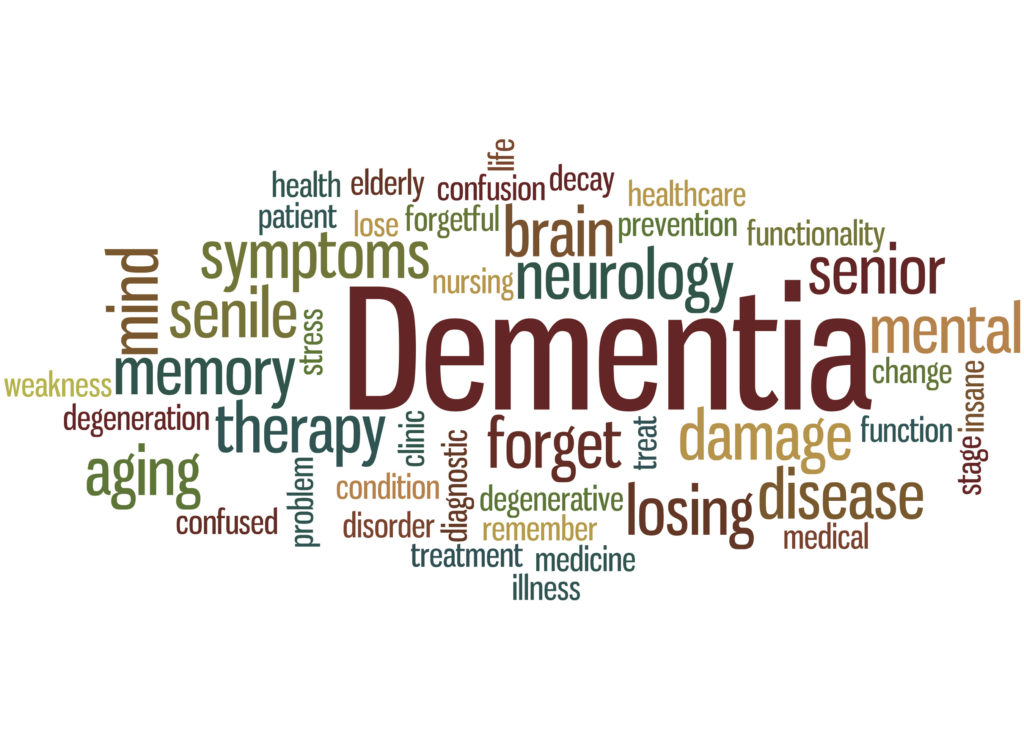
Residence Treatment for Alcoholism Begins
The first week in treatment was getting used to this 12-step program and adjusting to the treatment program. The first thing I must say about Warriors Heart is that they treat all of us as adults – with dignity and respect. The clinical staff, client staff, and operations staff all understand the nature of our military service. Most of them are veterans or family members of service members. They get the service nature of our lives, and we are treated as such. The second comment is we are all treated as the same, regardless of whether a Colonel or a Private (that was the range of ranks during my treatment program). Third, the program utilizes one-on-one clinical counseling (three times a week), small group therapy (6-times a week, 10-15 participants), large group therapy (8-times a week, 35-42 participants depending upon enrollment that week), and activities (20-times a week, 5-30 participants). These activities included: swimming, art, woodworking, gym, metal shop, hiking, fishing, canine, gardening, cooking, cross-fit, and massage. We also attended three AA meetings a week and there was also allotted time to work the 12-steps and to complete assignments.

Focus On Self
There was very little contact with the “outside” world – we got 45-minutes of phone time a day, and visitation was only on Saturday, from about 1500 to 1645. We were given a pass at the 4-week mark, which we could take on or off campus. We were issued our phones at 1500 on Saturday and had to return it and be on campus at 2100. On Sunday, we were issued our phones at 0830 and had to return it and be on campus at 1530. During the pass, we had to be accompanied by a sober person and prohibited from driving. That was it as far as the “outside” world, except for access to a computer lab consisting of two computers for the approximately 40 clients enrolled in the program. This limitation on “outside” contact kept us focused on our sobriety and developing tools to combat our addiction.
Medical Treatment For Alcoholism
In addition to cognitive behavioral therapy, we met with a medical doctor and a psychiatrist. Since most of the clients had co-morbidity of depression, insomnia, and post-traumatic stress, medications were used in this program. For me personally, I was prescribed for daily use Effexor (depression), Naltrexone (for alcohol cravings), Losartan HCTZ (high blood pressure), Clonidine (high blood pressure), Gabapentin (seizure prevention), folic acid, Vitamin B1, Vitamin B12, and a multi-vitamin. I was prescribed on an “as needed basis” (PRN) Olanzapine (anxiety), Hydroxyzine (anxiety), Methocarbamol (back spasms), and Trazodone (insomnia). Our vitals were taken daily at the medication call. The program worked very hard to find the right mix of medications to assist in the healing process.
Warriors Heart Overview
Warriors Heart is a rehabilitation treatment facility designed to assist combat veterans and other first responders. It is a 12-step, 42-day minimum residential rehabilitation program. It sits on about 560 acres in the Texas Hill Country, with a courteous and helpful staff. Its kitchen is fantastic, and saving warriors is their mission. They treat the wholistic self: mind, spirit, and body. Warriors Heart rehabilitation treatment facility is supported by a non-profit foundation, the Warriors Heart Foundation (a separate entity from the rehabilitation treatment facility), which is run by a board of governors, with one of the goals of assisting individuals without insurance or the funds for the treatment.
An Alcoholic’s Final Thoughts
For me, this was a difficult but very good program – it forced me to dig into my past – and unpacking the traumatic events and acknowledging my character defects that drove me to self-medicate with the bottle. Add the stress of practicing law – especially military criminal defense – and I desperately needed this program and wish I would have opted for it much earlier. We are all aware of the fact that lawyers experience “alcohol use disorders at a higher rate than other professional populations.” I now see that I was a powder-keg, just ready to explode – I am thankful that my “rock bottom” did not end with me hurting myself or someone else, with my practice and law license intact.
Today, I am fresh out of this rehabilitation program with nearly 50 days of sobriety – with optimism for my future for the first time in years. I thank all of you who helped me through this difficult time (you know who you are) — especially Ebru, TK, Lauren, Niko, and James. I no longer plan my days around trying to free up time to drink or hiding my alcohol. I no longer have huge alcohol-induced gaps in my memory. I no longer hate myself or who I represent. This is the message I want to share – if you or a military/lawyer friend is in crisis, or if you suspect alcoholism is interfering with your or their personal or professional life, please get help, or let them know help is available. My life was saved by acknowledging my disease – and it was Warriors Heart that facilitated that self-discovery – without which I am confident would have led to my untimely demise. I look to share this experience with all who need it – friends, family, and clients.
My name is Will. I am an alcoholic.
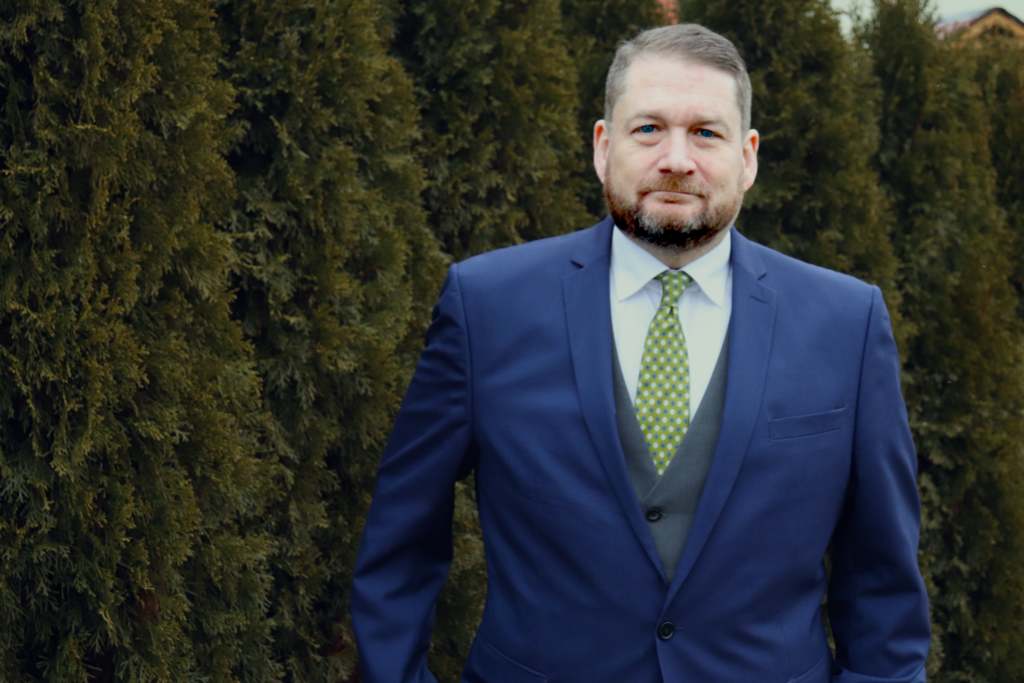
Will M. Helixon unveiled the Law Office of Will M. Helixon in February of 2016. Originally headquartered in Kansas City, Missouri, the firm’s original mandate was to defend members of the military in courts-martial, adverse administrative proceedings and other criminal proceedings. Today, the firm has advised commanders and defended Soldiers in multiple complex and high-profile military cases. The firm now handles most military matters, including medical issues involving the MEB/PEB process, adverse administrative matters, military justice matters, and legal assistance matters, including the correction of military records. No longer in Kansas City, the firm now has a presence in North Texas (Frisco) and a European office physically located in Vilseck, Germany. Call us today to assist with your legal issue in Europe.
All military lawyers at the Law Office of Will M. Helixon maintain licenses to practice before all military trial courts.
Law Office of Will M. Helixon – Germany, Hans-Ohorn-Platz 7, First Floor, 92249, Vilseck, Germany.

